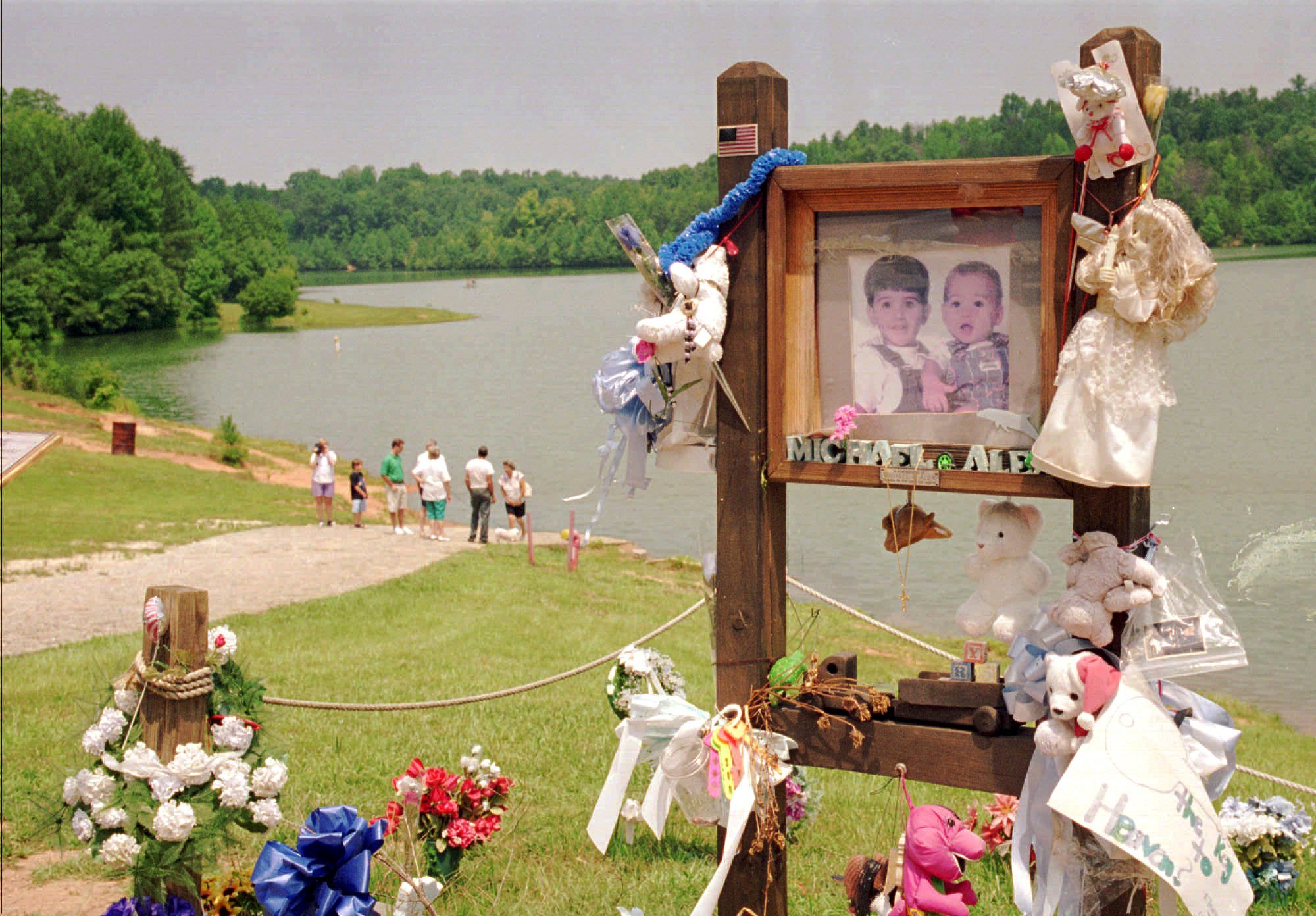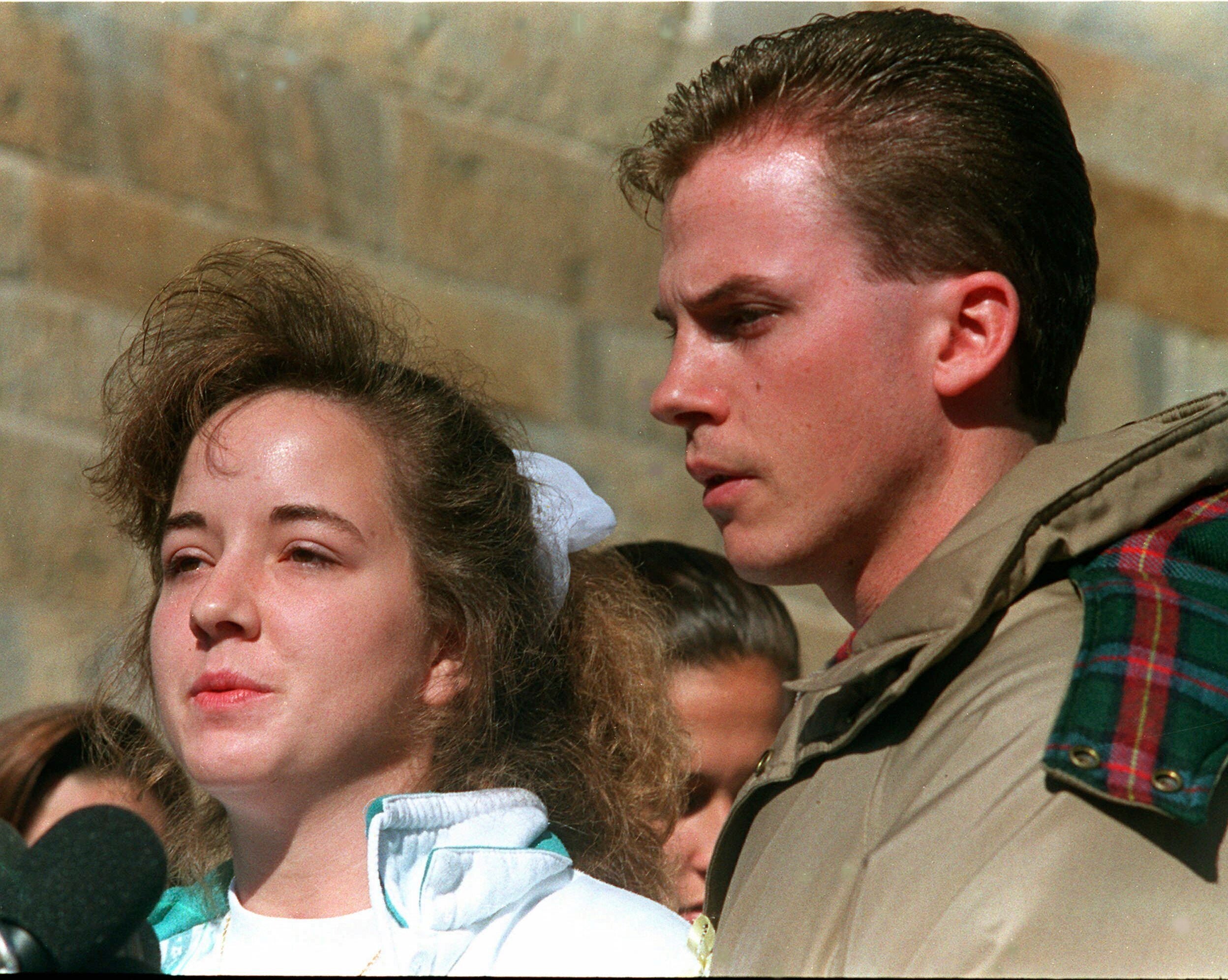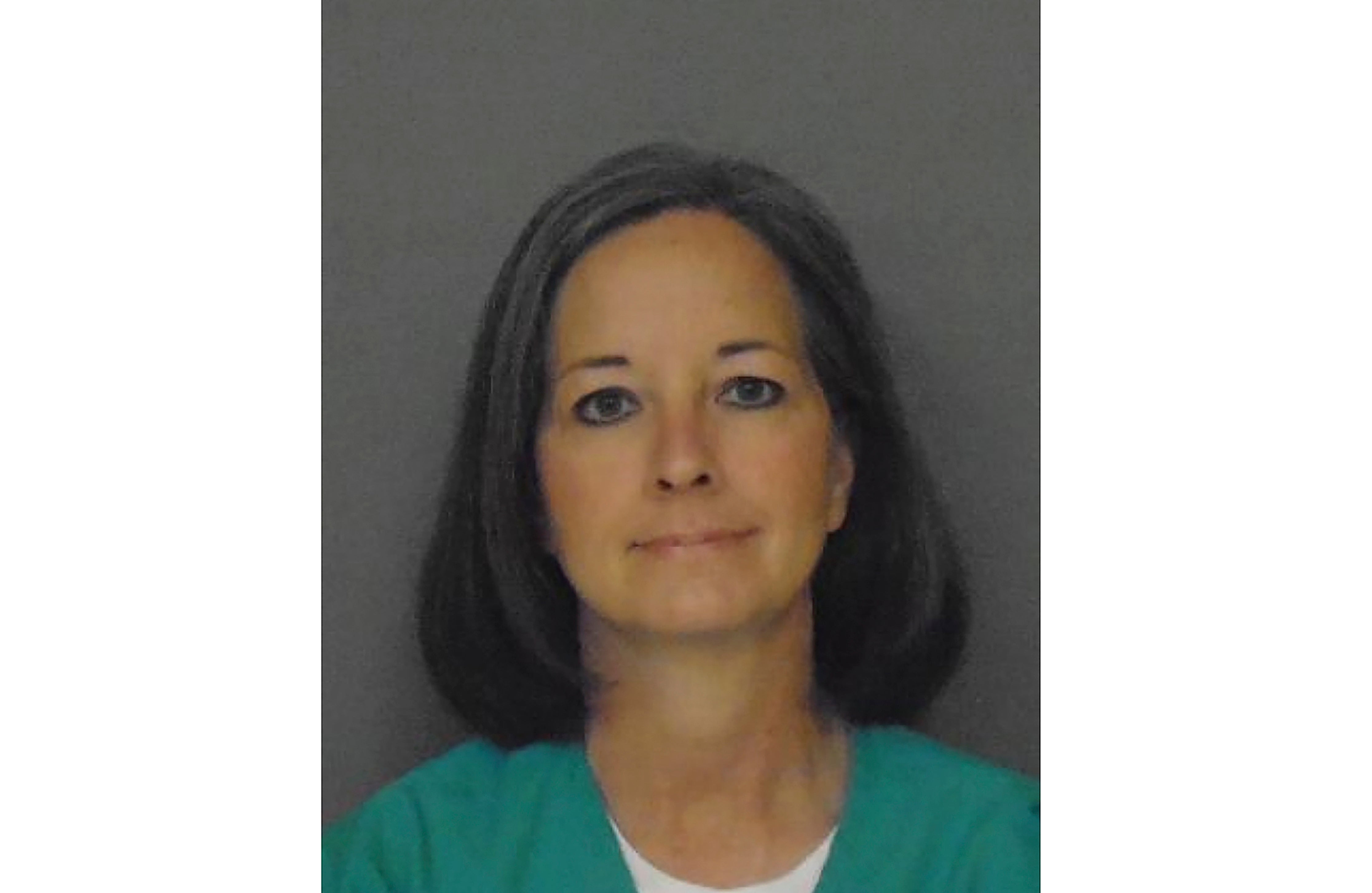
Susan Smith, the South Carolina mother who killed her two sons by rolling her car into a lake in 1994 and then falsely blamed a Black man, will ask a parole board for her freedom on Wednesday.
For the last 30 years, Smith, 53, has served a life sentence behind bars after a jury convicted her of murder for strapping her two young sons into the backseat of the car before putting it into a lake. Now that she’s hit the three-decade mark, she is eligible for a parole hearing every two years.
Her ex-husband, David Smith, is now pleading to leave her in prison.
“30 years is just not enough,” David told Today. “This wasn’t an accident. She deliberately killed Michael and Alex.”

Smith killed three-year-old Michael and 14-month-old Alex in October 1994 because a man she was having an affair with suggested the boys were the reason they didn’t have a future together, prosecutors said during the trial.
But she made international headlines by claiming she was carjacked late at night near the city of Union, South Carolina, and that a man drove away with her sons inside. Smith, who is white, said the carjacker was Black. For nine days, Smith and David made pleas asking for their sons to be returned safely – the entire time, the boys were strapped in a car at the bottom of the John D. Long Lake.
David said he doesn’t believe Smith is sorry nor will she ever be rehabilitated.
“God gives us free will and that was her choice that night, nobody else’s choice. Nobody made it for her. She made the choice to murder Michael and Alex,” David told Today.
He and prosecutors plan to oppose Smith’s request for parole to the seven-member parole board.
A decision to grant parole requires a two-thirds vote of board members present at the hearing, according to the state Department of Probation, Parole and Pardon Services. Parole in South Carolina is granted only about 8 percent of the time and is less likely with an inmate’s first appearance before the board, in notorious cases or when prosecutors and the families of victims are opposed.

At the time of the case, investigators said Smith’s story didn’t add up.
Carjackers usually just want a vehicle, so investigators questioned why they would let Smith out but not her children. The traffic light where Smith said she had stopped when her car was taken would only be red if another car was waiting to cross, yet Smith said no other cars were around. Other bits and pieces of the story did not make sense.
Smith ultimately confessed to letting her car roll down a boat ramp and into the lake. A re-creation by investigators showed it took six minutes for the Mazda to dip below the surface, while cameras inside the vehicle showed water pouring in through the vents and steadily rising.
The boys’ bodies were found dangling upside-down in their car seats, one tiny hand pressed against a window,

Prosecutors said Smith was having an affair with the wealthy son of the owner of the business she worked at. He broke it off because she had the two young sons.
Smith’s lawyers said she was remorseful, was suffering a mental breakdown and intended to die alongside her children but left the car at the last moment.
The 1995 trial of the young mother became a national sensation and a true crime touchstone even though it wasn’t televised by a judge who worried about what cameras were doing to the O.J. Simpson murder trial going on at the same time. Her lawyers worked to save her life, noting that Smith's father had killed himself and that her stepfather was having sex with her along with the owner of the business where she worked.

From prison, Smith can make phone calls and answer text messages, many coming from journalists and interested men. Those messages and phone calls were released under South Carolina’s open records act, something Smith didn’t initially realize could happen. She said the invasion of her privacy upset her along with the public revelation that she was juggling conversations about the future with several men.
Smith says in some of the messages she still grieves for her children.
Smith also had sex with guards. And she violated prison policies by giving out contact information for friends, family members and her ex-husband to a documentary producer who discussed paying her for her help, according to former prosecutor Tommy Pope.







